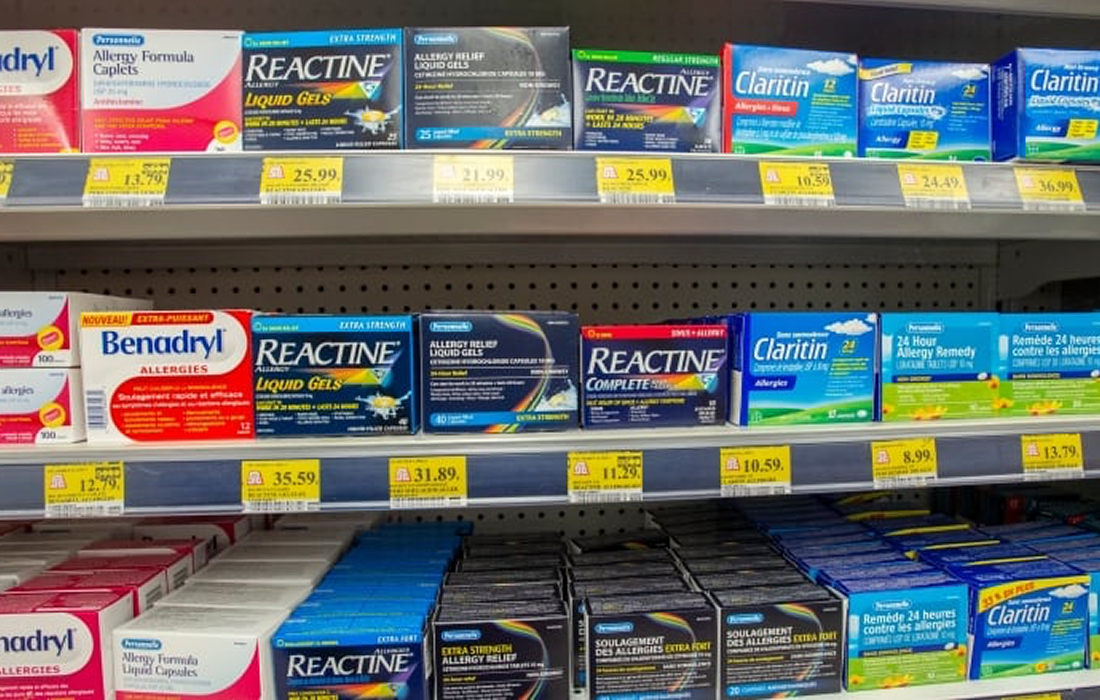Regenerative Medicine News and General Information
Antihistamines Can Enhance Response to Immunotherapy. New Study
Antihistamines are medications commonly used to treat allergies, such as hay fever, hives, conjunctivitis and reactions to insect bites or stings. They are also sometimes used to prevent motion sickness and as a short-term treatment for insomnia.
Most antihistamines can be bought from pharmacies and shops, but some are only available on prescription.
What is Histamine?
Histamine is a metabolite of histidine. Is best known for its release from mast cells as a response to allergic reactions or tissue damage. It exerts its effects primarily by binding G-protein-coupled receptors, designated histamine receptors H1 through H4.
Among them, HRH1 is the major one involved in allergic response. During allergic reactions, mast cell-released histamines activate the receptor, which triggers contraction of smooth muscles and increases capillary permeability, resulting in classic allergy symptoms.
HRH1 antagonists, mostly over-the-counter drugs, are widely used to relieve allergy symptoms.
New Study
A new study from the University of Texas MD Anderson Cancer Center found that treatment with antihistamines was associated with improved responses to immune checkpoint inhibitors.
The study demonstrated that histamine receptor H1 (HRH1) acts in tumor-associated macrophages (TAMs) to suppress T cell activation in the tumor microenvironment. The results were published in the journal Cancer Cell.
This receptor is frequently increased in the tumor microenvironment and induces T cell dysfunction.
Their data suggest that targeting HRH1 may come handy as a treatment approach in combination with checkpoint blockade to overcome immunotherapy resistance and improve outcomes, particularly for patients with pre-existing allergies or high plasma histamine levels.
Immune checkpoint inhibitors are a type of immunotherapy that work by blocking certain checkpoints proteins that regulate the activity of T cells, unleashing the T cells to mount an anti-tumor response and eliminate cancer cells. Checkpoint blockade provides long-lasting responses for many patients, but not all benefit equally. Therefore, there is a desire to better understand factors that contribute to immunotherapy sensitivity or resistance.
They saw that patients with melanoma or lung cancer that were using concurrently antihistamines targeting HRH1 were correlated with significantly improved survival outcomes.
They also demonstrated a correlation between plasma histamine levels in patients with cancer and responses to immune checkpoint inhibitors, which suggest that elevated histamine levels, either from allergies or cancer cell production, may contribute to suppression of the antitumor response.
They conclude that their findings suggest that antihistamines have the potential to enhance responses to immunotherapy, especially in patients with high levels of histamine in the blood.
Source:
Hongzhong Li, et al. The allergy mediator histamine confers resistance to immunotherapy in cancer patients via activation of the macrophage histamine receptor H1. Cancer Cell, 2021; DOI: 10.1016/j.ccell.2021.11.002
https://www.nhs.uk/conditions/antihistamines/
University of Texas M. D. Anderson Cancer Center. “Antihistamines can influence immunotherapy response by enhancing T cell activation: Study uncovers new role for histamine receptor, suggesting possible treatment approach in combination with checkpoint inhibitors.” ScienceDaily. ScienceDaily, 24 November 2021.
<www.sciencedaily.com/releases/2021/11/211124153944.htm>
Image from:
https://www.cbc.ca/news/health/canadian-allergists-benadryl-side-effects-warning-1.5358283

